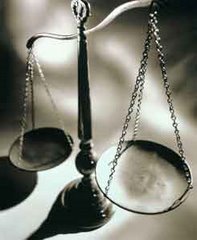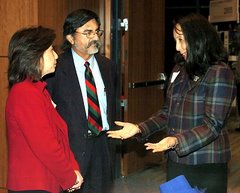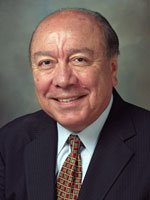ISSUE NUMBER ONE
DID THE THIRTEENTH COURT OF APPEALS CITED opinion "advocates for the State advancing arguments in order to affirm?" Siverand v State Decision conflict and/or Contradict The Texas Rule of Appellate Procedure 21.1 providing that a motion for new trial is a prerequisite to presenting a point of error on appeal when necessary to adduce facts not in the record? Does LIMITING a RECORD THAT PERMITS ONLY Appellee to trial but not appellant violate the the Due Process Clause of the Fourteenth Amendment or in the Compulsory Process or Confrontation clauses of the Sixth Amendment, the Constitution guarantees criminal defendants ‘a meaningful opportunity to present a complete defense.'" Crane, supra,at 690 (quoting California v.Trombetta,467 U.S.479,485 (1984);citations omitted
DID THE THIRTEENTH Court of Appeals err to ignore MFNT arguments advanced by Appellee, admitting denying to serve a subpoena to an "outstanding member of the community", appellant consistently maintains is a crucial material witness to her defense? Does this contradict, The Supreme Court ruling in Washington v. Texas when it explained: "The right to offer the testimony of witnesses and to compel their attendance, if necessary, is in plain terms the right to present the defendant's version of the facts?"
DID THE THIRTEENTH COURT OF APPEALS CITED opinion "advocates for the State advancing arguments in order to affirm?" Siverand v State Decision conflict and/or Contradict The Texas Rule of Appellate Procedure 21.1 providing that a motion for new trial is a prerequisite to presenting a point of error on appeal when necessary to adduce facts not in the record? Does LIMITING a RECORD THAT PERMITS ONLY Appellee to trial but not appellant violate the the Due Process Clause of the Fourteenth Amendment or in the Compulsory Process or Confrontation clauses of the Sixth Amendment, the Constitution guarantees criminal defendants ‘a meaningful opportunity to present a complete defense.'" Crane, supra,at 690 (quoting California v.Trombetta,467 U.S.479,485 (1984);citations omitted
The Supreme Court affirmed the importance of this constitutional provision in its 1967 ruling in Washington v. Texas when it explained: "The right to offer the testimony of witnesses and to compel their attendance, if necessary, is in plain terms the right to present the defendant's version of the facts as well as the prosecution's to the jury so it may decide where the truth lies. Just as an accused has the right to confront the prosecution's witnesses for the purpose of challenging their testimony, he has the right to present his own witnesses to establish a defense. This right is a fundamental element of due process
We have held that "No technical considerations or form of words" are required to preserve error for review. Lankston v. State, 827 S.W.2d 907 (Tex. Crim. App. 1992) (straightforward communication in plain English will suffice if it lets the trial judge know what the party wants and why he thinks himself entitled to it); see also Cofield v. State, 891 S.W.2d 952, 954 (Tex. Crim. App. 1994)
Argument
I. Did the 13th Court of Appeals err in its decision that the trial court did not abuse its discretion in denying appellant's motion for new trial?
i) Appellant’s 6th Amendment right to the Compulsory Process was violated.
ii) Appellant believes her right to compulsory process was violated.
iii) Mary Cano never appeared to any of the proceedings in which Appellant’s Counsel subpoenaed her.
iv) A subpoena was issued for Mary Cano directing her to appear before the same court proceeding (MFNT) in which the State argues “it can get her there if she is needed”.
v) The State admits knowledge of Mary Cano’s whereabouts and being easy to find; yet whether willfully or inadvertently maintains the conspiracy of silence in violation of LeeAnn Haley’s 6th Amendment right to Compulsory Process.
vi) State admits in open court, “She’s (Mary Cano) not hiding out, as Ms. Haley testified to. I can – I know personally I can pick up the phone and call her and get her here if she needs to be here”.
vii) “If the combination and weight of factors requisite to given results are difficult to forecast or state, those to be considered are not difficult to name. An interest to be considered, and the one likely to be most pressed, is the private interest of the litigant. Important considerations are the relative ease of access to sources of proof; availability of compulsory process for attendance of unwilling, and the cost of obtaining attendance of willing, witnesses;
II. Did the 13th Court of Appeals err by not addressing the points of error in the appellant’s written motion for new trial and amended motion for new trial?
i. In the appellant’s written motion for new trial and amended motion for new trial and in her original appeal; the appellant raises several points of error in the examination hearing and referred to by in RR SUPP Vol. p.6, @ 18-25 of the Court record as “some of the issues i n your Motion for New T r i a l and your amended a f f i d a v i t or the supplemented a f f i d a v i t you provided, they may be issues t h a t have legal validation that w i l l be addressed on appeal that remain unaddressed.
DID THE THIRTEENTH COURT OF APPEALS ERR IN AFFIRMING THE TRIAL COURT'S DENIAL OF A MOTION FOR NEW TRIAL WHEN THE STATE PRESENTED NO EVIDENCE OR REPLY BRIEF TO CHALLENGE APPELLANT'S
POINTS OF ERROR PRESENTED IN HER MOTION FOR NEW TRIAL AND AMENDED MOTION FOR NEW TRIAL AND PROCEDES TO POSTURE AN ADVANCING ARGUMENT ON BEHALF OF THE STATE AND ABANDONING HIS ROLE AS AN IMPARTIAL JURIST?
ON APPELLATES MOTION FOR NEW TRIAL THE STATE ARGUES, A MATERIAL WITNESS UNDER SUBPOENA, IS NOT HIDING BECAUSE SHE IS AN OUTSTANDING MEMBER OF THE COMMUNITY, VOLUNTEERS "I KNOW I CAN PERSONALLY PICK UP THE PHONE AND GET HER HERE IF SHE NEEDS TO BE HERE" IF APPOINTED COUNSEL DOES NOT OBJECT OF MOVE FOR MISTRIAL OR REQUEST TRIAL COURT TO ENFORCE THE SUBPOENA OR CITE BRADY OR EXERCISE COMPULSORY PROCESS IS WHO VIOLATING APPELLANT'S SIXTH AMENDMENT RIGHTS OF THE U.S. CONSTITUTION ADVANCES THE ARGUMENT ILLUSTRATING REASON WHY THERE IS THE TEXAS FAIR DEFENSE ACT?
WHEN AN APPELLANT FILES A MOTION FOR NEW TRIAL PRO SE AND REQUESTS APPOINTED COUNSEL ON APPEAL THEN APPOINTED COUNSEL FILES A MOTION TO WITHDRAW, WHEN SHOULD THE APPELLATE COURT ORDER THE TRIAL COURT THE JURISDICTION TO APPOINT NEW COUNSEL? UPON THE MOTION TO WITHDRAW OR WHEN APPELLANT IS ABANDONED BY COUNSEL AND IS EMPLOYED BY THE STATE OR BECOMES EMPLOYED BY THE STATE QUALIFY OR CONSTITUTE A VIOLATION AND/OR VIOLATING THE TEXAS FAIR DEFENSE ACT?
IS IT INEFFECTIVE ASSISTANCE OF COUNSEL WHEN COURT APPOINTED APPELLANT COUNSEL FAILS TO FILE A MOTION FOR REHEARING AND DOES NOT DISCLOSE TO THE APPELLANT THE RIGHT TO FILE SUCH MOTION, COUNSEL MOVES OUT OF TOWN AND DOES NOTHING TO NOTIFY APPELLANT OF ANY OPTIONS THAT A PAYING APPELLANT IS AFFORDED VIOLATE THE POLICY AND STANDARDS REQUIRED IN THE FAIR DEFENSE ACT?
WHEN AN APPELLANT REQUESTS APPOINTED COUNSEL SHOULD THE TEXAS FAIR DEFENSE ACT ENFORCE COURT APPOINTED COUNSEL TO ADVANCE THE REMEDY REQUIRED WHEN THE STATE FAILS TO FILE A REPLY BRIEF AFTER THE TIME HAS EXPIREDTO RESPOND TO THE STATE'S FAILURE? IS THE PROPER REMEDY FOR THE STATE BENEFIT BY OMISSION OR THE APPELLATE COURT'S FAILURE TO ORDER THE STATE COMPLY THE TRAP REQUIREMENT OF THE 38.1(h) and 38.2(a)(1) AND IS THE STATE FAILING TO REPLY AND BENEFIT CONTRARY TO THE FAIR DEFENSE ACT?
DID THE THIRTEENTH COURT OF APPEALS ERR OVERRULING APPELLANTS MOTION FOR APPOINTED COUNSEL IN AN ADVERSARIAL PROCEEDING
rules of appellate procedure require the parties to advance their own arguments. Tex. R. App. P. 38.1(h) and 38.2(a)(1). Finally, decisional authority prevents us from advancing arguments on behalf of either party. Lawton v. State, 913 S.W.2d 542, 554 (Tex. Crim. App. 1995)
. The subject matter of this petition has significant public interest; the public welfare demands that the agencies of public justice be not so impotent that they must always be mute and helpless victims of deception and fraud of prosecutors who SUPPRESS facts or secret witnesses capable of establishing the innocence of the accused.") (emphasis added). Evidence is "material" if there is a reasonable probability that, had the evidence been disclosed to the defense, the result of the proceeding would have been different. Kyles v. Whitley, 514 U.S. 419, 434 (1995); United States v. Bagley, 473 U.S. 667, 676 (1986); Thompson v. State, 841 S.W.2d 399, 404 (1992). A "reasonable probability" is a probability sufficient to undermine confidence in the outcome. Bagley, 473 U.S. at 682. Brady evidence includes impeachment evidence as well as exculpatory evidence. See id. At 676.
1. : "The right to offer the testimony of witnesses and to compel their attendance, if necessary, is in plain terms the right to present the defendant's version of the facts Washington v. Texas, 388 U.S.14 (1967)
The state admitted at motion for new trial it could have served the subpoena but believed it was not needed.
This is a gross obstruction to the appellants sixth amendment right to have compulsory process to have witnesses testify on her behalf.
The state engaged in prosecutorial misconduct in violation of defendant's fourteenth amendment depriving her right to due process of law and equal protection of the law as guaranteed in the United States constitution.
In Chapman v. California, 386 U.S. 18 (1967), we acknowledged that certain constitutional rights are "so basic to a fair trial that their infraction can never be treated as harmless error." Among these rights is the right to the assistance of counsel at trial. In my view, the right to effective assistance of counsel is entailed by the right to counsel, and abridgment of the former is equivalent to abridgment of the latter. I would thus hold that a showing that the performance of a defendant's lawyer departed from constitutionally prescribed standards requires a new trial regardless of whether the defendant suffered demonstrable prejudice thereby. Strickland v. Washington
466 U.S. 668 (1984) Marshall dissenting.
2.
3. THE COURT OF APPEALS IMPROPERLY FOCUSED SOLELY ON THE CONDUCT OF THE LEAD PROSECUTOR IN HOLDING THAT TRIAL COURT DID NOT ABUSE ITS DISCRETION BY DENYING APPELLANT’S AMENDED MOTION FOR NEW TRIAL.
4. THE TERM "PROSECUTION" ENCOMPASSES THE ENTIRE PROSECUTORIAL TEAM INCLUDING INVESTIGATIVE AGENCIES NOT MERELY A CASE'S LEAD PROSECUTOR. IN REVIEWING THE TRIAL COURT'S FINDING THAT THE STATE RECKLESSLY / BUREAUCRATICALLY WITHHELD EXCULPATORY EVIDENCE, THE 13th COURT OF APPEALS FOCUSED SOLELY ON THE STATE'S LEAD PROSECUTOR WITHOUT EXAMINING THE REMAINDER OF THE STATE'S PROSECUTION TEAM 2. USAM § 9-5.000
5. THE RECORD DEMONSTRATES AN “ESSENCE OF MARY CANO” AS PER THE 13TH COURT APPEALS OPINION, ”we note that the essence of Cano's testimony was before the jury”. THE STATE’S ABILITY TO REFUTE APPELLANT AND HER HUSBAND’S TESTIMONY
i.
ii.
iii.
6. THE 13TH COURT APPEALS ERR IN DECIDING ON “if the result of appellant's trial would have been different with Cano's testimony”.














No comments:
Post a Comment